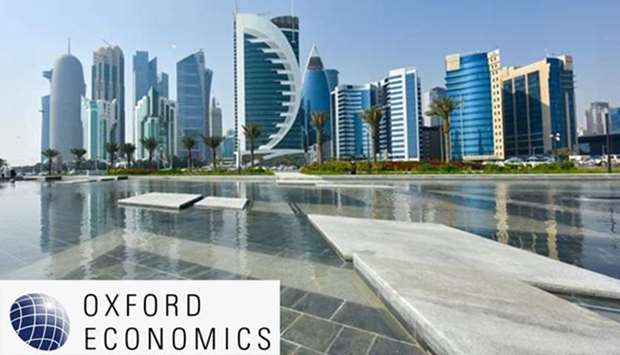Qatar is “more resilient” to lower oil prices than other producers, thanks to the lowest fiscal break-even (at $45.4 per barrel in 2020) in the GCC, large financial buffers and greater flexibility over oil output since leaving OPEC in January 2019, Oxford Economics has said in a new report.
According to Oxford Economics, Qatar’s crude oil output rose just 0.1% in 2018 and the researcher thinks it declined by 0.2% in 2019.
Industrial production “fell” in the fourth quarter (Q4) of 2019 and nominal exports “contracted” throughout the year.
“With external demand risks diminishing, we retain our projection for oil output in 2020 of 615,000barrels per day (bpd), above the levels achieved in 2018 and 2019,” Oxford Economics noted.
The lifting of the moratorium on North Field gas projects will have a “positive” impact and the Barzan gas facility should still boost gas output in 2020, it said.
On Qatari lenders, the report noted most local banks have stable ratings and improving outlooks and are well capitalised. But they “face high and rising exposure” to construction and real estate and a higher foreign funding risk.
On the country’s balance of payments, it said while the external “debt burden became large” due to “heavy investment” in a relatively short period of time, it then “fell markedly” as a ratio to GDP, before “picking up” again since 2015 as the oil price plummeted.
But it is not seen as “particularly worrying” given the large but undeclared foreign assets (including some $37bn of official reserves as at late 2017), the sustained current account surpluses (until 2016), rapid economic growth and access to cheap external borrowing thanks to its high, albeit falling, sovereign credit ratings.
The country’s large external surpluses have been invested abroad in property, financial, retail and other sectors by the Qatar Investment Authority.
QIA is estimated by the Sovereign Wealth Fund Institute to have assets in excess of $300bn, and the aim is to reduce the state’s reliance on oil and gas earnings, Oxford Economics noted.


